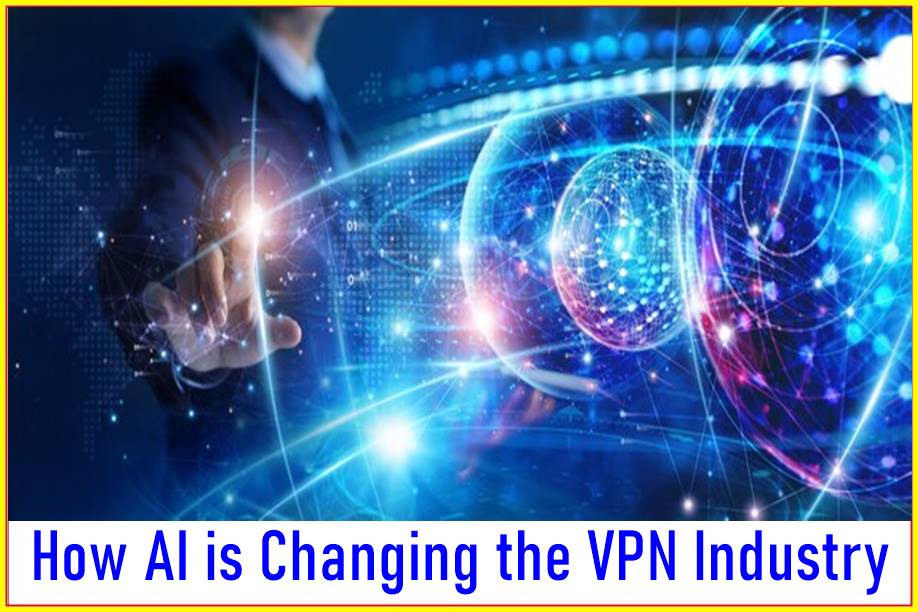How AI is Changing the VPN Industry
How AI is Changing the VPN Industry
The ability of a device to think and learn is referred to as “artificial intelligence.” There are limitless uses for AI because it mirrors how humans view and comprehend the world. For instance, the UserWay review claims that AI reduces human mistakes, performs harmful health duties, helps people find solutions, and gives effective comparisons without affecting the present coding of your website.
The emergence of artificial intelligence has sparked concerns over data protection. Artificial intelligence uses our private data to teach itself. Our private information is protected by encrypting. However, large corporations are investing significantly in AI, which experts say may cause encryption to lose ground.
What does the future of VPNs hold? Will VPN for all devices continue to be useful in a society that may one day be ruled by AI technology?
AI’s Impact on VPN
The benefits of AI for VPN technology are greater. A study found that current VPNs can attain 90 percent of overall accuracy thanks to AI and learning algorithms. Despite differing VPN laws in every country, VPNs are essential to any action or discourse concerning cyber defense knowledge.
AI-based networking enables Internet users to link to a VPN server near the final server to accomplish this goal. Enabling traffic to stay inside the network not only improves but also increases communications security. The user becomes far more difficult to trace as a result. With AI-powered VPN, home routers are far more secure. A home network might have a security breach equally as frequently as a company network.
- AI Suppression
Because AI-powered VPNs can assist in thwarting other AI-based algorithms, they are crucial for avoiding restrictions. In many countries, censorship is becoming more prevalent. One of the main applications of VPNs is to deceive the host server into believing you are in a different location. While typically referring to access to unavailable live streaming services in some areas, this is crucial for obtaining outside media, data, and online service sources. The widespread usage of VPNs in regions such as China, where government firewalls block even the most basic services from companies such as Google or eBay, is hardly surprising.
- AI and VPN Security
AI is beneficial to VPNs. VPNs for all devices can use algorithms to tackle the risk AI poses to private information. VPNs can better safeguard customers from internet attacks thanks to algorithmic machine learning. Combining machine learning and VPN raises the bar for corporate data protection. Even web security for digital marketing and eCommerce is ensured with them.
AI enables individuals to connect to the VPN server nearest to the target host by routing them to the appropriate VPN server based on their current location. Due to the increase in online crimes, VPNs increase home connection security. VPN packages leverage AI to provide a completely new level of security.
- AI and VPN Privacy
VPNs are battling fire with fire when it relates to AI. Digital AI dangers can be fended off with machine learning, enhancing your capability to maintain privacy and security. Your online behavior is monitored and recorded whether you prefer it or not. Every piece of information looks unimportant on its own, but when combined, it reveals your online identity. Thus, you understand why you frequently encounter adverts on a retail website after viewing it.
AI and VPNs work together to thwart these and other threats. VPNs are now more protected than ever thanks to AI’s role in preventing these attacks.
- Improvements to VPN Technology
Contrary to what VPNs offer, AI-powered advancements in VPN technology are on the way. The following technologies will be available in VPN updates:
- Using the fingerprinting capability, VPN customers can identify their data and activity via their VPN
- Improvements to configuration and installation speed: Setting up a VPN today might be challenging. Configuration procedures enabled by AI will make this work considerably simpler.
- Encryption is improved but only protects the data inside IP packets when using IP tunneling
- Identification: Because VPNs presently only protect observable communications, subscription services may be able to block customers who attempt to use a VPN while utilizing their services. Future VPNs will be far more difficult to find, which should solve these issues
Conclusion
VPN is undoubtedly available for all devices. The development of AI further underlines the necessity of VPN privacy. Although AI has the potential to improve the convenience and enjoyment of our lives, you can also abuse it. And VPN aids in controlling that. There are numerous benefits to AI that apply to all fields. It accesses the Internet, analyzes a sizable amount of data, and uses its algorithms to carry out various tasks. A VPN is useful in this situation. It assists in maintaining security and privacy violations even when utilized with AI.
The destiny of the VPN market will be determined by how well the features mentioned earlier are integrated into the next VPNs. You should anticipate seeing these features sooner, given how quickly technology is developing in the modern day.
How to Take Advantage of Social Media in Online Marketing
How AI is Changing the VPN Industry
